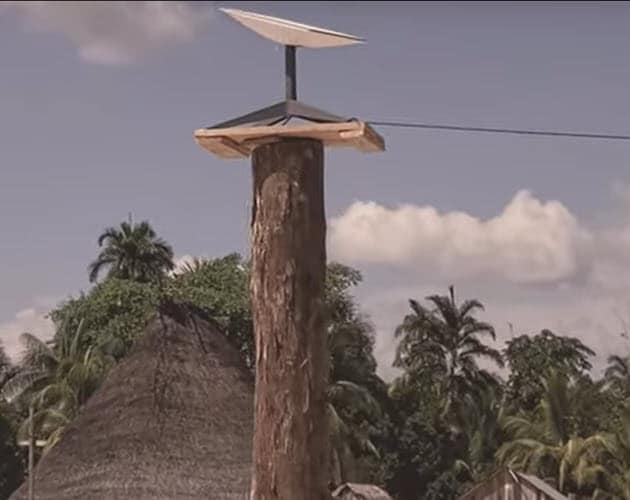Starlink Brings Internet to Remote Tribe. They Get Hooked to Porn

Elon Musk’s efforts to bring internet access to a secluded Amazonian tribe have backfired, according to tribal elders who blame social media and pornography for tearing the community apart.
Nine months ago, the arrival of Starlink, Musk’s internet service, brought the web to the remote Marubo tribe along the Ituí River for the first time. This has caused a bitter rift within the 2,000-member community – between those who wish to keep the community free from the clasps of technology, and those who are ready to embrace it.
The Marubo, a tribe with its own language, consumes ayahuasca for a spiritual connection to the forest and practices trapping spider monkeys for food or companionship. Centuries of isolation, with some villages a week’s journey away, have safeguarded the Marubo’s traditional way of life. However, since September, high-speed internet access courtesy of Elon Musk’s project has changed it all.
Starlink Arrives in Remote Communities
Starlink, from SpaceX, has transformed the Amazon rainforest. Since arriving in Brazil in 2022, Starlink has brought the web to hundreds of remote communities, including the Marubo tribe, making it one of the last offline regions on Earth to be connected.
“When it arrived, everyone was happy. But now, things have gotten worse,” Tsainama Marubo, 73, told The New York Times. Within the maloca, the village’s communal dwelling towering 50 feet above the dirt floor, she sat kneading jenipapo berries for black body paint. Adorned with snail-shell jewellery, she focused on her task.
“Young people have gotten lazy because of the internet. They’re learning the ways of the white people,” before pausing and adding, “but please don’t take our internet away.” The internet has become a double-edged sword for the Marubo, essential yet fraught with unforeseen consequences.
In just nine months with Starlink, the Marubo are already facing the same issues that have plagued American households for years: Teenagers constantly on their phones, gossip-filled group chats, addictive social networks, online strangers, violent video games, scams, misinformation, and minors viewing pornography.
Bypassed by the gradual integration most societies experienced, the Marubo and other Indigenous tribes, long resistant to modern influences, now face the internet’s potential and pitfalls head-on. This sudden encounter sparked a critical question: How will the internet reshape their identity and culture?
The Unforeseen Consequences of Innovation
The relentless march of the internet has reached even the most remote corners of the world. SpaceX’s Starlink, with its massive constellation of low-orbiting satellites, is bringing internet access to places once unthinkable, like the homes of the Marubo tribe.
Business is booming for Starlink. In May 2024, they reached a milestone of 3 million customers across 99 countries, and analysts predict their annual sales are up around 80 percent compared to last year, reaching $6.6 billion.
Starlink’s rise has propelled Musk to control of a technology increasingly seen as critical infrastructure. From Ukrainian troops to Yemeni rebels and hospitals in Gaza, to emergency responders globally, Starlink provides internet access in diverse and often conflict-ridden areas.
This widespread adoption raises questions about neutrality and control, as evidenced by Musk’s controversial support for Ukraine, which even earned him a Nobel Peace Prize nomination.
Observer Voice is the one stop site for National, International news, Sports, Editor’s Choice, Art/culture contents, Quotes and much more. We also cover historical contents. Historical contents includes World History, Indian History, and what happened today. The website also covers Entertainment across the India and World.

